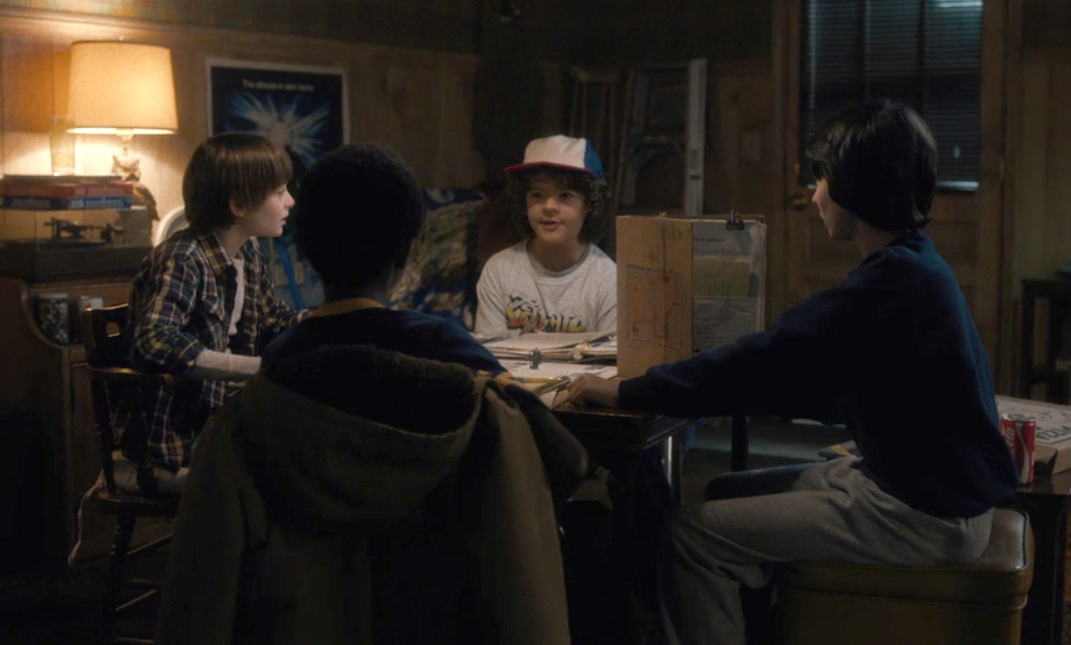Kid's Games
The tv show, 'Stranger Things', has exposed a lot of kids to the game of Dungeons and Dragons, and this has really spread its' popularity with children. I myself had introduced my then 9 year old daughter to the game and after a couple of games I realized that it was going to be a great way for my kid to explore her imagination, as well as learn problem solving skills. Soon after I began playing D&D with my daughter, I had the pleasure of introducing a group of 12 year old boys to the game when a parent contacted me wanting to run a game for her son and his friends. It was not something I had considered for this business, but it was a great experience for me and an honor to introduce the boys to the game. They had a great time.
In the coming years I will be working to establish a working relationship with schools to start 'Dungeons and Dragons' kids groups. I think that this is something that will really gain in popularity with young people and would make an excellent extra-curricular activity at schools. In the last couple of years I have been attempting to increase my market by offering gaming sessions for children's birthday parties, special events, or just regular kids groups that meet monthly or bi-weekly like my adult groups do.
For the parents not familiar with this game and that may have concerns, let me set your minds at ease; Yes, sometimes the 'heroes' in the story will be battling monsters or evil villains, and in some cases, killing these beasts, but for the most part, I tone down the violence in kids games and focus more on decision making and problem solving. The level of violence in a D&D game is MUCH less than many of the video games that our children are exposed to so frequently in their lives. I for one am much more comfortable having my daughter play an adventure fantasy game than I am her playing a video game that has her shooting hundreds of people with guns.
In a Dungeons and Dragons game, the players are each playing the role of a character; a warrior, wizard, cleric, rogue, bard, druid, monk, paladin or ranger. This character can be either a human, a dwarf, an elf or half-elf, a halfling, dragonborn, a gnome or a half-orc. Once the character is selected, the players in the group form a 'party' of adventurers who go out to seek treasure, fight evil and do good deeds. I generally do not allow children to play 'evil' characters. They are all heroes.
THE BENEFITS OF CHILDREN PLAYING DUNGEONS AND DRAGONS
In a game of D&D, you can expect your child to;
- learn problem solving skills
- explore his/her imagination
- learn practical applications of basic math and writing skills
- learn the value of teamwork to accomplish a common goal
- understand diversity and how to respect others despite their differences
- gain confidence
- feel like a hero
- have lots of FUN
Does this sound like something you would want your child to experience? If so, contact me at the bottom of the home page and lets discuss setting up a kids' group.
Recommended age: 10+
Cost: $25 USD per child for a 4 hour game (4 player minimum)
Referral Letter from a Canadian teacher;
I’m Robert, an educator at a large independent school in Hamilton. I have used Dungeon Master for Hire services for the last three years and feel there are outstanding benefits for students of all ages to be found in Dungeons and Dragons. First and foremost, it can be taken up by pupils with a lot of exposure to the game or by brand-new players, as Mr. Dempsey caters to a variety of player abilities and adjusts accordingly. It is also an activity that requires minimal teacher supervision; you need a room, a student’s laptop, and a Zoom link, and you are ready to adventure. You are provided with digital choices for the students to create a character which reflects their own personality or someone totally opposite. Once this is done, he organizes their character sheets and sends them to the faculty supervisor. This is when the real fun begins. Players are immersed in a world of danger and adventure via Mr. Dempsey’s extensive collection of miniatures and terrain. Players have plenty of opportunities to cooperate to overcome the challenges they face or make decisions in isolation. Problem-solving is paramount in this game, but ultimately, players have to accept the decisions they make, even if they are fatal to themselves or others. The game can bolster a student’s confidence in decision-making, reading and writing, and even math skills because the game relies on dice rolls, which players have to modify with addition and subtraction. More importantly, this activity enhances a student’s social skills, creativity, critical thinking and empathy for others. It also teaches an essential lesson about coping with failure. Not every battle can be won, nor can every devious trap be disabled, but your party of adventurers will learn from their errors and live to loot a chest of treasure another day! You will be surprised by what your students will get out of this amazing game that Mr. Dempsey delivers with style and flair. Enjoy!
